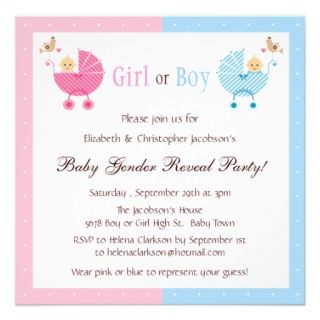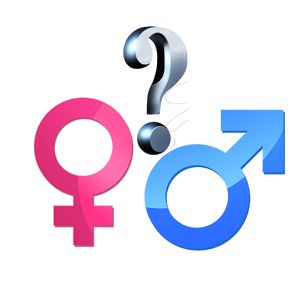Gender
"Gender Reveal Parties" In Utero?
How confusing sex, gender, and identity causes problems for all of us
Posted March 20, 2014

On my way to work this morning I heard a radio ad from a local 3-D/4-D ultrasound company that was touting its giant screen and seating capacity for 20 so you can host your very own "gender reveal party" during your pregnancy. For those of you who read my previous post on boys will be boys, you won't be surprised to find out that this was troubling to me for several reasons:
- Calling it a "gender reveal party" is a misnomer. Gender is a socially constructed category that is culturally specific and based on a set of behaviors that are developed through relationships in an ongoing way that includes how one presents oneself and interacts with others. Gender cannot be "revealed" in the womb. Gender will be revealed over time as a child makes choices and develops language to express themselves and how they want to be treated. A more appropriate term would be a "genital reveal party."
- The importance our culture places on learning the genitals of a child prior to its birth is disconcerting and limiting on the families and child's own expression and creativity. The first question many people ask of pregnant parents are, "Do you know the sex?" or "Is it a boy or a girl?" as if that is the most important thing to know about the future child. Other questions that might be more supportive include, "Are you sleeping?" "Are you eating well?" "Do you need help when the baby is born?" "Are you feeling ready for the arrival?" A family in Canada were the center of a media storm when a newspaper profiled them and explained their decision to keep the genitals of their child, (ironically the child was named Storm), a private matter. The absolute horror and international scrutiny that followed is indicative of how much weight we place on knowing someone's genitals, or what some people think is the "true sex" of a person.
- What a person's genitals look like is a private matter and is only important information to that person's medical provider and future lovers. Psychologist Suzanne Kessler eloquently stated in her book Lessons from the Intersexed, "In the everyday world gender attributions are made without access to genital inspection… What has primacy in everyday life is the gneder that is performed, regardless of the flesh's configuration under the clothes." Meaning, we don't ask people to verify their gender by pulling down their pants when we meet them. We treat them based on how they present themselves in dress, mannerisms, body language, speech patterns, etc.—the social expressions of their identity.
- Confusing sex, gender, gender identity, and sexual orientation reduces the diversity of human experience and leads to a lot of unnecessary misogyny, transphobia, and homophobia.
Is anatomy destiny? Freud famously stated that, "anatomy is destiny," arguing that one's genitals were the most important factor in determining one's personality traits. However, more contemporary gender theorists such as Anne Fausto-Sterling and Judith Butler have argued that gender is a social construction, and so is sex. In her book, Sexing the Body, Fausto-Sterling clearly provides evidence of how the medical institution has repeatedly "treated" otherwise healthy bodies because a child's genitals were not immediately recognizable as a penis or a vagina. There is more variety and diversity in animal biology than our legally recognized two-sex system recognizes. Approximately 2.7% of all babies born have some natural variation in their body that does not clearly place them as male or female. These bodies are designated as having a "disorder of sex development" or DSD and many of these individuals come to identify as intersex while embracing a gender identity that could be: man, woman, androgynous, or other term that best represents them. I wrote more about this phenomenon in an earlier blog post here.
It is true in our culture that one's anatomy at birth does set us up for a series of social interactions that have a strong influence on shaping our personalities as well as our educational and career paths. But this is not to say that these differences are "innate" or "natural", just that our socialization of children is heavily shaped by the expectations that we place on them and the influences they are exposed to.

I actually really like the idea of "gender reveal parties"—it can be a radical concept that allows a child to assert their gender and then give the family an opportunity to share it with their community. My concern is about having this party while the child is in utero. It would be amazing if it became a tradition to do on a child's 5th birthday (or any other time the child has fully asserted their gender identity, but it is usually between the ages of 3-7) and a way that we could allow a child to develop in their early years free of gendered socialization and stigma and become the person they most want to be. I look forward to living in a world where I will be invited to a family's "gender reveal party" where the guest of honor gets to make a debut as they want to be seen and they get recognized and celebrated for all of who they are.


